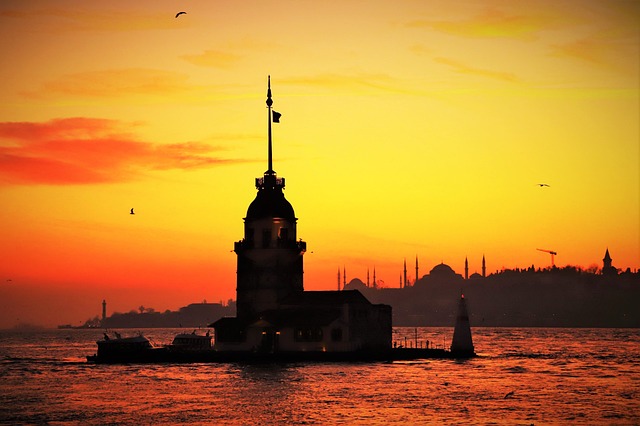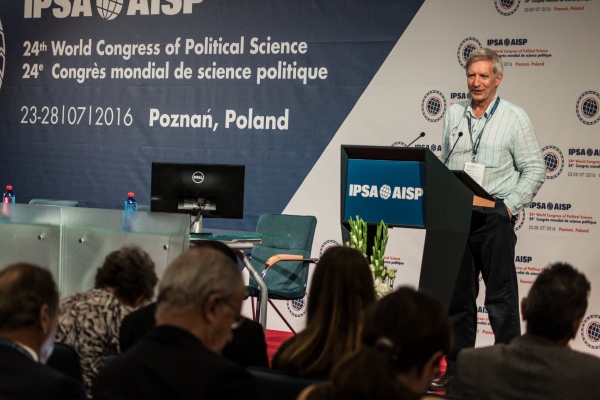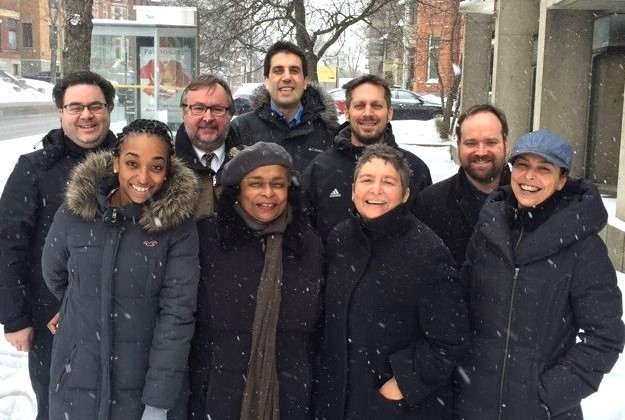2016
Istanbul, Türkiye, was selected as the host city for the 2016 IPSA World Congress of Political Science at the 105th EC meeting in Madrid on 29-30 October 2010. This historic decision underscored Istanbul's unique status as a meeting point between East and West, as well as North and South. The Turkish Political Science Association (TPSA) formed the Local Organizing Committee (LOC) for the 2016 World Congress, chaired by Füsun Türkmen.
When the call for proposals ended on 14 October 2015, the Secretariat received 6,142 paper proposals for the Istanbul World Congress; however, leading up to the event, concerns regarding security and academic freedom arose, prompting the IPSA Secretariat to closely monitor the developing situation in Türkiye.
Incidents led to the Relocation of the 2016 World Congress
From October 2015 to February 2016, a series of five terrorist attacks occurred in Istanbul and Ankara, leading to the relocation of the Congress on 24 February 2016. After the relocation of the Congress, 11 more attacks took place in the country, the last one on June 28, targeting Istanbul's Ataturk Airport and resulting in 41 deaths.
Academic freedom was another obstacle for the Istanbul World Congress. In January 2016, over a thousand Turkish academics, known as the Academics for Peace group, held a press conference to sign a petition in response to the Turkish government's anti-terror operations in Kurdish towns. Following the petition, these academics faced repercussions, including job loss, passport confiscation, lawsuits, and arrests. IPSA President Aiji Tanaka, on behalf of the EC, issued a public statement in support of Turkish academics on 18 January 2016.
During the 119th EC meeting in Monterrey in December 2015, the EC established a Decisional Committee to evaluate the situation in Istanbul and determine if action was necessary. On 24 February 2016, the Committee decided to relocate the 2016 IPSA World Congress of Political Science to another European city.
Within a month, the IPSA Secretariat analyzed twelve European bids through an expedited process. Thanks to the tremendous support of the Turkish and Polish Local Organizing Committees, the Secretariat and the Program Committee were able to relocate the 2016 World Congress from Istanbul to Poznań, Poland, in just four months.
The decision to relocate the Congress was proven right once again just before the event. A faction within the Turkish army attempted a coup d'état on 15 July 2016, a week before the World Congress. Following the coup attempt, the government imposed a travel ban on academics, preventing Turkish LOC and delegates from attending the 2016 IPSA World Congress in Poznań. In the subsequent months, thousands of Turkish academics were also dismissed from public universities under emergency decrees.
2016 World Congress of Political Science in Poznań, a Resounding Success
The 2016 IPSA World Congress of Political Science was held from 23-28 July 2016, in Poznań, Poland, under the theme of Politics in a World of Inequalities. The event drew 2,587 participants from 92 countries, the second-highest turnout in the history of this event at the time.
Under the leadership of Marian Sawer (Australia) and Dianne Pinderhughes (USA), the program committee played a crucial role in the success of the 2016 World Congress Program. In spite of its relocation, the event was a great success, with some 633 panels and 2,271 papers presented, along with five plenary sessions, four award sessions, and a full slate of cultural and social events. Research Committees (RCs) played an active role, forming 393 panels covering various areas of research and accounting for 62% of the panels presented.
The plenary sessions were led by Peter Anyang’ Nyong’o, Senator for Kisumu County in the Parliament of Kenya; Richard Wilkinson, Professor of Economics; Joseph Stiglitz, Columbia University and winner of the 2001 Nobel Prize in Economics; Leszek Balcerowicz, Professor Emeritus of Social Epidemiology; and Aiji Tanaka, outgoing IPSA president.
Photo: 2016 Program Co-Chairs and the IPSA Secretariat staff
Front row (from left to right): Jessica Tavares, Dianne Pinderhughes, Marian Sawer, Andrea Cestaro
Back row: Eric Grève, Guy Lachapelle, Haluk Dag, Yannick Saint-Germain, Mathieu St-Laurent















